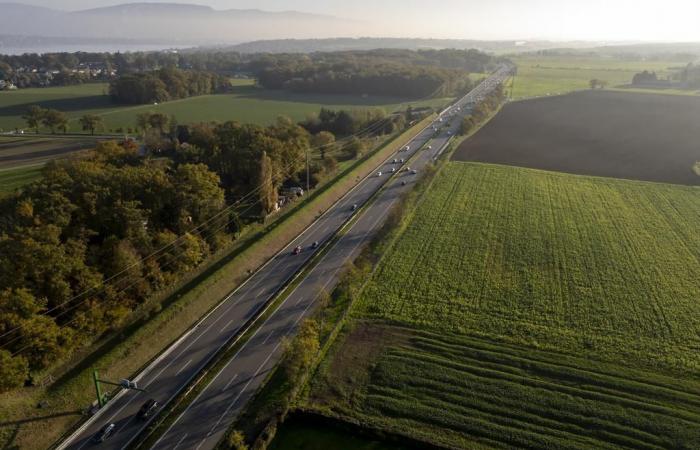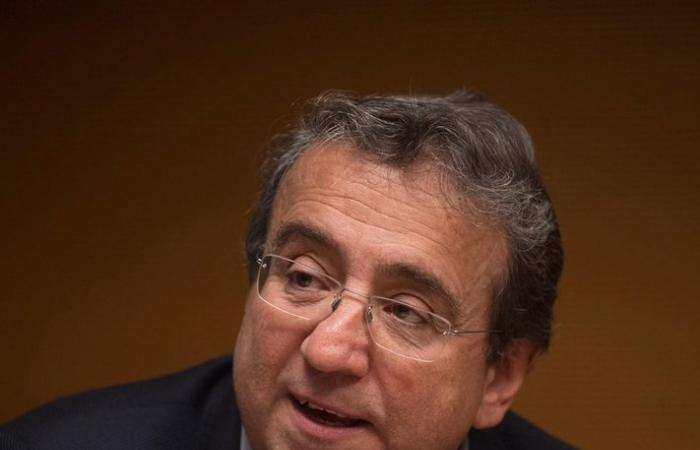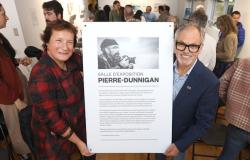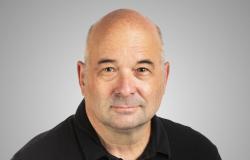The guests –
Let’s eliminate the bottlenecks in the Lake Geneva region!
State Councilors Mauro Poggia (GE) and Pascal Broulis (VD) are calling for a “yes” vote to the widening of the A1 between Nyon and Le Vengeron on November 24.
State Councilors Mauro Poggia (GE) and Pascal Broulis (VD).
Published today at 7:09 p.m.
KEYSTONE/SAVIOR OF NOLFI
Subscribe now and enjoy the audio playback feature.
BotTalk
In 2011, the Cantons of Vaud and Geneva created the “Lémanique Métropole”. The goal of this new intercantonal organization was to deploy Valdo-Geneva solutions to the problems affecting the Lake Geneva region. At the time, one of the first problems identified by the governments of the two cantons was the inadequate nature of the transport infrastructure. Indeed, under demographic pressure, Vaud and Geneva found that their rail and motorway routes were no longer able to cover needs, so that several bottlenecks had formed.
This situation was already weighing on the local economy, while other regions, including Zurich, were already planning work to increase the capacity of their road and rail networks. In this context, the two Lake Geneva cantons have therefore decided to create a rail-road alliance to relieve congestion on their main transport routes.
The rail-road alliance is essential
Thirteen years later, the results are mixed. If the efforts of the Lake Geneva Metropolis have enabled great political victories in Bern, notably with the development of the Léman Express and the launch of the “Léman 2030” project (pending the development of the new Lausanne-Geneva railway line), force is to see that the road has been somewhat forgotten.
However, things started out pretty well. In 2012, the Federal Roads Office (Ofrou) published a preliminary study supporting the principle of eliminating the road bottleneck located on the A1 between Nyon and Le Vengeron. After long preparatory work leading to the publication of hundreds of technical pages by engineers and mobility specialists, this project was finally presented to parliament in 2023.
The Federal Chambers approved it, as did the conference of cantonal governments. It must be said that it is part of a global planning vision.
Indeed, the cantons and municipalities concerned are constantly improving their traffic management policy by creating new P+Rs not far from motorways. Equipped with interfaces with public transport at a high level of service (trams, BRT, etc.), these large car parks will help avoid any increase in traffic in city centers, particularly in Geneva where five P+Rs are currently in project.
But now a referendum has been launched against the elimination of the bottleneck located between Nyon and Le Vengeron, and a few other projects representing around 2% of the national road network. The transport war is thus relaunched by those who still think that rail can absorb all transport demand.
However, if we shifted 15% of trips from car to train, rail capacity would have to be doubled. Moreover, the immense investments planned in the development of rail (35 billion over the next few years) will therefore not change much. Indeed, Switzerland, and the Lake Geneva region in particular, is experiencing strong demographic growth. Remember that the cantons of Vaud and Geneva saw their population increase by nearly 24,000 inhabitants in 2023 alone, the equivalent of the city of Nyon.
Faced with the scale of these developments, a railway network, even massively “augmented”, would therefore not have the necessary absorption capacity.
The alliance of rail and road is therefore essential. It is she, and she alone, who will be able to cover the needs and give a little breathing space to public transport users in the Lake Geneva region. All other options, including allowing the highway to become dysfunctional, would amount to nothing more than chaos politics. Traffic jams on the highway would continue to increase to a saturation point. Part of the traffic would then flow into towns and villages bordering the highway, causing numerous nuisances.
This most cynical policy, particularly for populations living in rural areas who would then experience more avoidance traffic, will not resolve chronic rail congestion either. On the contrary, the latter is expected to get even worse, causing further disruption and reducing the comfort of users who must increasingly agree to remain standing during their trips to Lake Geneva.
For all these reasons, it is imperative to vote a big “yes” on November 24.
“The Tribune of Opinions”
With the Tribune of Opinions, find analyzes, editorials, readers’ letters, expert opinions… So much insight to form your own opinion every Monday.
Other newsletters
Log in
Did you find an error? Please report it to us.
0 comments








